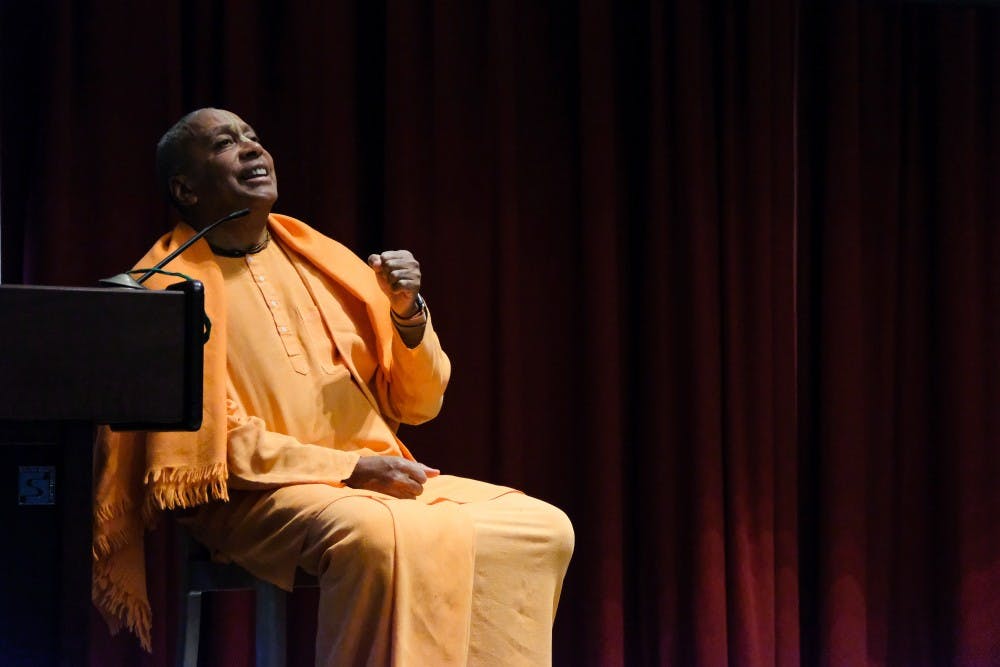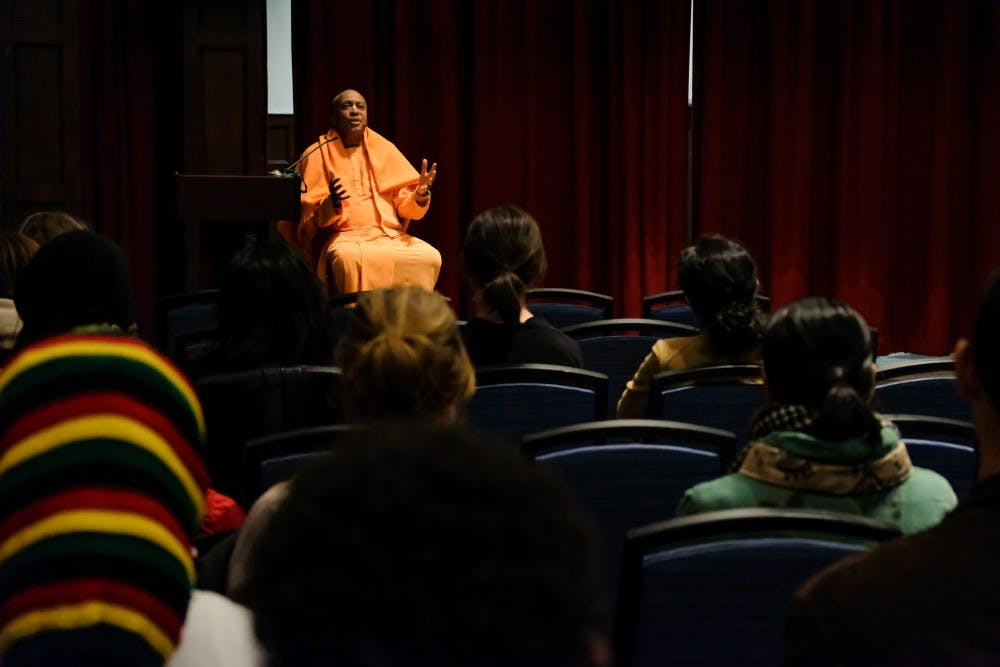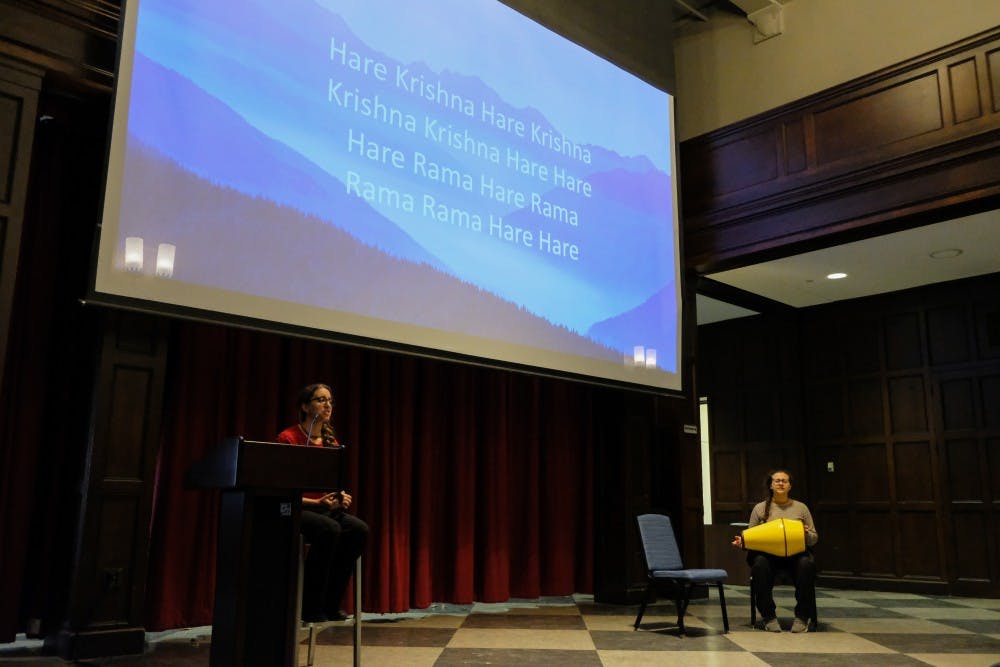
World-traveling monk Devamrita Swami visited Penn to share his thoughts on being happy and maintaining environmental sustainability by not focusing on material rewards.
Bhakti Yoga club hosted the event in Houston Hall of Flags on April 10. Swami, a Yale graduate, has been a monk in the Krishna Bhakti tradition since 1982 and has researched consciousness for 45 years.
As an author of several books on happiness and an expert on consciousness, meditation, and human existence, Swami is also the founder of the Institute of Sustainability and the director of many sustainable farm communities around the world, including one in Pennsylvania.
During the event, Swami encouraged people to see themselves as non-material selves so that they do not exploit nature by solely focusing on materialistic aspects of life.
“Sustainable happiness recognizes that your true being is not material and your mission in life is non-materialistic,” Swami said. “We are not materialistic entities and we should not dedicate our lives to pursuing material happiness.”
For example, Swami mentioned that oftentimes, millennials can be too stressed or obsessed with physical aspects of materialistic happiness. Swami said the current society is becoming too competitive, that everything becomes a “I-win-you-lose” situation, which can lead to exploitation.

Instead, Swami thought people should see that physical materials are not the end goal to life.
“The last thing you should do, meaning what you should never do,” Swami said, “is critically analyze material happiness and its comings and goings."
Attendee and College junior Zach Rissman said it’s encouraging that Swami is urging students not to focus too much on materialistic aspects of life.
"Too often a lot of us get caught up in the things that we shouldn’t get caught up in,” Rissman said. “And that if we can always get past those tiny details that hold us back and just become happy for non-material ways, then I think a lot of good will come from there.”
Additionally, Swami talked about his challenge to encourage sustainability in developing countries.
For example, he recounted that when he was in South Africa, people were more reluctant to accept sustainability because for many developing nations, exploiting the materialistic objects may be the only way that their countries can prosper economically.
In other ways, Swami also believed that people risk misunderstanding the meaning of success.
For example, Swami said some in "second- or third-world" countries, people may “have the idea that having big lumps of meat on your plate is a sign of prosperity and status.”
He urged people to fight against this social stigma.
“We need to think outside the box in terms of that,” Swami said. “We need persons who can demonstrate how to be happy beyond a material lifestyle.”

President of the Bhakti Yoga club and College junior Rishabh Kumar thought the message from the event helps college students “because it enables us to live a more balanced and healthy lifestyle.
Last year, Swami was also invited by the Bhakti Yoga club to speak to students about the meaning of success. Swami warned students to distinguish the external aspects of success such as fame, social status, and fortune from the internal aspect of success which comes from the deep knowledge of oneself.
Attendee Alyssa Seunarine, who is pursuing a PhD in mechanical engineering, said the talk helped her reaffirm some of her decisions and beliefs such as becoming a vegetarian and practicing yoga.
“Now I feel like I am really on the right path to attaining true happiness,” Seunarine said.
The Daily Pennsylvanian is an independent, student-run newspaper. Please consider making a donation to support the coverage that shapes the University. Your generosity ensures a future of strong journalism at Penn.
Donate






